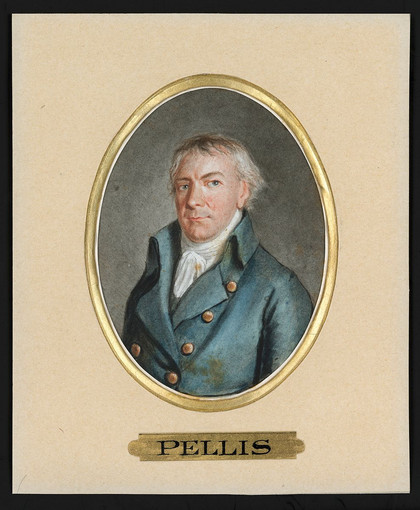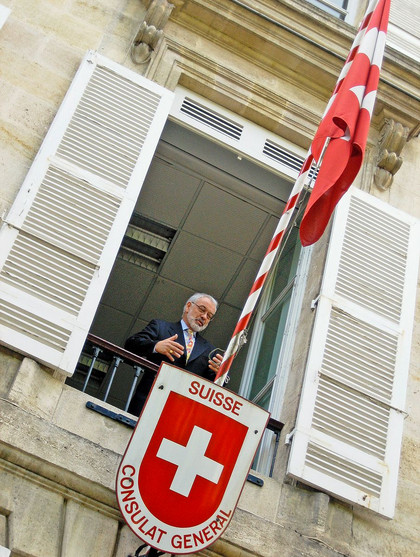![[Translate to English:]](/fileadmin/_processed_/0/d/csm_EDA-Hinweis_Mailbox-Karlsruhe-DE_Prometheus_Unsplash_39f6ff0ecc.jpg)
Please note
![[Translate to English:]](/fileadmin/_processed_/0/d/csm_online_Revue_2502_EDA-Abstimmung_c92f583a2c.jpg)
Votes and Elections

Marianne Jenni | “The Swiss Abroad are important for Switzerland’s image”

Change of address Swiss Review

Votes and Elections

The Federal Audit Office – driving efficiency and transparency since 1877

Please note


If a Swiss loses her ID in Cuba, she will go to the Swiss consulate. If a Swiss couple in Australia become parents or a Swiss in Kenya needs support, they will also get in touch with the relevant Swiss representation abroad – benefiting from a diplomatic network that can trace its beginnings as far back as 1798, when Switzerland’s first-ever consulate opened in Bordeaux.
Swiss representations now have an established presence around the globe. Based in almost every country, they act as the first point of contact for Swiss Abroad in need of help and support. But this has not always been the case. The network of Swiss representations abroad grew gradually during the course of the last two centuries, starting in Bordeaux in 1798.
People carrying out duties of a diplomatic or consular nature on behalf of individual cantons were already stationed in friendly countries before 1798. But no one actually represented the country as a whole. This is because the Old Swiss Confederacy – Switzerland before Napoleon’s invasion – amounted to nothing more than a loose collection of states with few common interests.
The ideals of the French Revolution shaped Europe at the end of the 18th century. And the new values of ‘liberty, equality, fraternity’ also circulated around Switzerland, leading to increasing protests and unrest as early as the 1790s. The French invaded the Old Swiss Confederacy in March 1798, establishing the centralised Helvetic Republic on 12 April 1798.

As soon as there was a stable political environment again, key priorities fell into place for the Helvetic Republic at national and international level. As economic links around the globe grew stronger, representing Swiss interests abroad became more important. On 25 August 1798, the Helvetic Republic appointed Marc-Antoine Pellis as its inaugural consul – assigning him to Bordeaux, where Switzerland’s first-ever consulate was subsequently established.
Marc-Antoine Pellis (1753–1809) from Vaud was a senator and politician during the Helvetic Republic. After spending time in other parts of Europe, Pellis returned to Switzerland as the ideas of the French Revolution were taking hold. In Vaud, which was still governed by Berne at the time, he took part in open-air political ‘banquets’ in support of revolution and against Bernese rule. When Berne put a stop to these banquets in June 1791, arresting the ringleaders and putting Vaud under military occupation, he was forced to flee.
Pellis settled in the French city of Bordeaux on the Garonne River in 1793, establishing himself as a merchant. The Helvetic Republic, a centralised state modelled on the French Revolution, appointed him as consul in 1798. Three years later in 1801, he stepped down as consul and returned to Switzerland, where he became a member of the legislative assembly and the senate. Pellis went on to play a political role in both Vaud and the Helvetic Republic.

Following Bordeaux, consulates were also established in Marseille, Genoa, Nantes and Trieste. It is no coincidence that major European seaports were home to the first five consulates, as economic interests were the main reason behind the Swiss consulates. At a time when steamers, railways and telegraphs had not yet revolutionised international trade, direct relationships at the point of sale were of crucial importance. These port cities served as international trading hubs and as the starting points of routes connecting Europe with destinations overseas including colonies in Africa and Asia.
Economic interests were the primary reason for setting up the first consulates, but not the only reason. Diplomatic missions were necessary to cater for notable numbers of Swiss who had settled in the aforementioned cities – expat communities consisting of merchants and traders. To a certain extent, these cities also served as reception points for people wishing to emigrate overseas. Switzerland had been a country of emigrants since the mid-16th century, with poverty, underemployment, and population pressure forcing young Swiss to leave the country. Mercenaries, teachers, artisans, scientists and academics also began to settle in numerous European cities in addition to the merchants and traders, before venturing further overseas from the 19th century onwards. Due to demand, the first Swiss overseas consulate was established in 1819 in the Brazilian coastal city of Rio de Janeiro. A consulate in New York was then established a few years later in 1822.

For the most part, the honorary consuls who worked at these representations were Swiss nationals already living locally. It took a long time before their remit was clearly defined – consuls had to ascertain their duties by correspondence or through formal briefings. Responsibilities included sorting out passports, reporting back to the Helvetic Republic on how its citizens were conducting themselves abroad, and monitoring adherence to bilateral treaties.
Or, as the Swiss consul in Marseille, Vincent Perdonnet, wrote in a letter to the then foreign minister, Louis François Bégoz, in 1799, “extending a fraternal hand to those in unfortunate or unfair hardship as well as protecting others from the disastrous and appalling consequences of hate and deceit”.
Switzerland’s consular network has been a fixture since Marc-Antoine Pellis’s appointment in Bordeaux as the first-ever consul all those years ago. The network has continually expanded, and today there is a clear delineation of diplomatic, consular and economic responsibilities. It is also a network that continues to evolve and keep with the times. But the core function of consulates remains the same: to be the first point of contact for Swiss nationals around the world.
Comments